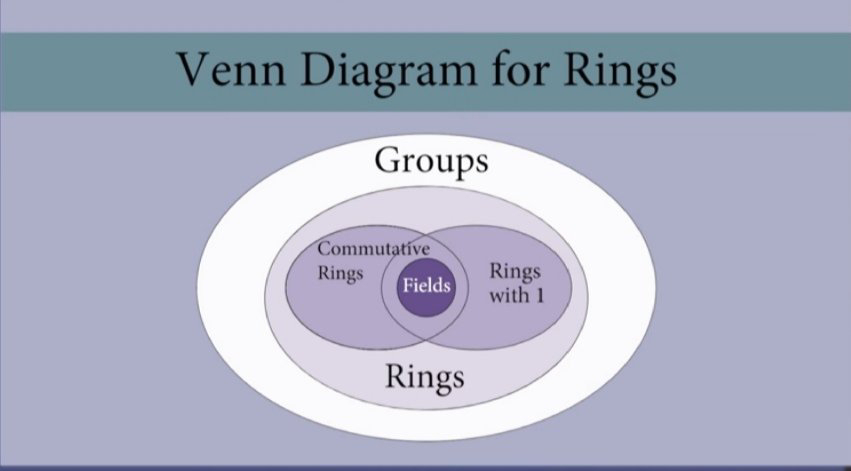In ring theory, a ring divisor of zero refers to an element of a ring that, when multiplied by another element, yields zero. These divisors of zero play a significant role in understanding the algebraic structure of rings. In this blog post, we will explore the concept of ring divisors of zero, discuss their properties, and examine some examples.
Let $R$ be a ring and $a \in R$ be a nonzero element. We say that $a$ is a divisor of zero in $R$ if there exists a nonzero element $b \in R$ such that $ab = 0$. In other words, $a$ is a divisor of zero if it annihilates some nonzero element of $R$ under multiplication.
Properties of Ring Divisors of Zero
Ring divisors of zero possess several interesting properties that are worth noting:
1. Closure under Multiplication
If $a$ is a divisor of zero in $R$, and $c$ is any element of $R$, then $ac$ is also a divisor of zero. This property arises from the fact that if $ab = 0$ for some nonzero $b \in R$, then $(ac)b = a(cb) = 0$, implying that $ac$ is also a divisor of zero.
2. Zero Divisors in Commutative Rings
In a commutative ring, every nonzero divisor of zero is a zero divisor. This means that if $a$ is a divisor of zero in a commutative ring $R$, then there exists a nonzero element $b \in R$ such that $ab = ba = 0$. The proof of this property relies on the commutativity of multiplication in the ring.
3. Non-Existence of Multiplicative Inverses
Divisors of zero are never units or have multiplicative inverses. If $a$ is a divisor of zero in $R$, then there is no element $b \in R$ such that $ab = ba = 1$. This property can be easily proven by contradiction, assuming the existence of a multiplicative inverse for a divisor of zero and showing that it leads to a contradiction.
Examples
Let's look at some examples of divisors of zero in different rings:
Integers Modulo $n$
Consider the ring $\mathbb{Z}_6$ of integers modulo $6$. In this ring, both $2$ and $3$ are divisors of zero since $2 \cdot 3 = 3 \cdot 2 = 0 \pmod{6}$. These elements demonstrate that divisors of zero need not be zero themselves.
Matrix Rings
Let $R$ be a ring and $a \in R$ be a nonzero element. We say that $a$ is a \textit{divisor of zero} in $R$ if there exists a nonzero element $b \in R$ such that $ab = 0$. In other words, $a$ is a divisor of zero if it annihilates some nonzero element of $R$ under multiplication.
Properties
Ring divisors of zero possess several interesting properties that are worth noting:
Closure under Multiplication
If $a$ is a divisor of zero in $R$, and $c$ is any element of $R$, then $ac$ is also a divisor of zero. This property arises from the fact that if $ab = 0$ for some nonzero $b \in R$, then $(ac)b = a(cb) = 0$, implying that $ac$ is also a divisor of zero.
Zero Divisors in Commutative Rings
In a commutative ring, every nonzero divisor of zero is a zero divisor. This means that if $a$ is a divisor of zero in a commutative ring $R$, then there exists a nonzero element $b \in R$ such that $ab = ba = 0$. The proof of this property relies on the commutativity of multiplication in the ring.
Non-Existence of Multiplicative Inverses
Divisors of zero are never units or have multiplicative inverses. If $a$ is a divisor of zero in $R$, then there is no element $b \in R$ such that $ab = ba = 1$. This property can be easily proven by contradiction, assuming the existence of a multiplicative inverse for a divisor of zero and showing that it leads to a contradiction.
Examples
Let's look at some examples of divisors of zero in different rings:
Integers Modulo $n$
Consider the ring $\mathbb{Z}_6$ of integers modulo $6$. In this ring, both $2$ and $3$ are divisors of zero since $2 \cdot 3 = 3 \cdot 2 = 0 \pmod{6}$. These elements demonstrate that divisors of zero need not be zero themselves.
Matrix Rings
Matrix rings provide another interesting context to explore ring divisors of zero. Let's consider the ring of $2 \times 2$ matrices over a field $\mathbb{F}$, denoted as $\text{Mat}(2, \mathbb{F})$. In this ring, a matrix $A$ is a divisor of zero if there exists a nonzero matrix $B$ such that $AB = 0$.
$A = \begin{bmatrix} 1 & 1 \\ 1 & 1 \end{bmatrix}$
To check whether $A$ is a divisor of zero, we can multiply $A$ by another nonzero matrix $B$ and see if the result is the zero matrix. Let's take
$B = \begin{bmatrix} 1 & -1 \\ -1 & 1 \end{bmatrix}$
Now, let's compute the product $AB$:
$=\begin{bmatrix}0 & 0 \\ 0 & 0 \end{bmatrix}$
which is the zero matrix.
Therefore, in the ring $(2, \mathbb{F})$, the matrix $A = \begin{bmatrix} 1 & 1 \\ 1 & 1 \end{bmatrix}$ is a divisor of zero, as it annihilates the nonzero matrix $B = \begin{bmatrix} 1 & -1 \\ -1 & 1 \end{bmatrix}$.








0 Comments
Comments